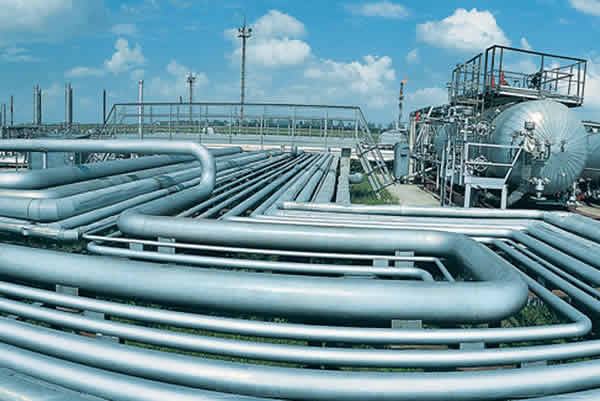
Nigeria’s oil production output may fall this month over a fresh pipeline explosion, according to findings by our correspondent.
A fresh explosion was said to have rocked a major export pipeline in the Niger Delta, with about 12 deaths reported on Thursday at Rumuekpe community in the Emuoha Local Government Area of Rivers State.
The explosion occurred at a major export pipeline, the 180, 000 barrels per day Trans Niger Pipeline that passes through the Rumuekpe community.
TNP pipeline, Nigeria’s major liquid hydrocarbon delivery channel, was under force majeure for the better part of last year. Apart from transporting crude to the Bonny Export Terminal, the TNP is also part of the gas liquids evacuation infrastructure which is critical for continued domestic power generation and liquefied gas exports.
Nigeria’s crude oil production has begun to recover, having increased by 100, 000 barrels per day last month, according to data obtained from Reuters’ secondary sources survey.
An increase by 100, 000 barrels per day in February, amounted to a rise of 2.8 million barrels in the month. The survey puts Nigeria’s oil output for last month at 1.3 million barrels per day, amounting to output of about 36,400 million for the month. Nigeria’s crude grade, Bonny Light, was sold for $84 per barrel in February, translating to a total earnings of about N1.408tn in the month.
However with the fresh development, Nigeria risks losing export of 180, 000 barrels per day this month, which could amount to losing over four million barrels of export if the pipeline is not quickly repaired.
Brent International closed around $86 per barrel on Friday, and Nigeria’s crude grade, Bonny Light, is usually sold at +$1 per barrel above Brent. Experts and analysts have continued to predict higher oil prices in 2023.
The Rivers State Police Command’s Public Relations Officer, Grace Iringe-Koko confirmed the explosion occurred at about 2a.m. when a bus loaded with illegal crude oil exploded just on its way from the site.
“Preliminary investigation by the police command indicates that the victims were scooping crude oil when the site caught fire. So far, about 12 persons are believed to have been burnt to death. The identities of the victims are still unknown.
“Five vehicles, four Keke NAPEP (commercial tricycles), and one motorcycle were all burned to ashes,” Iringe-Koko disclosed.
Also speaking, the Executive Director of Youth and Environment Advocacy Centre, Fyneface Dumnamene, said the investigation by the organisation revealed that all those who were at the exact tapping point in the “pit” got killed.
He added that some of those who had loaded the crude or were waiting to load, including women, were also killed by the explosion.
A statement signed by Chief Executive, Nigerian Upstream Petroleum Regulatory Commission, Gbenga Komolafe, also confirmed the incident on the shell-operated line, noting that the matter had been reported to the regulatory agency.
“The NUPRC wishes to announce that an explosion leading to a major fire incident near a pipeline in Rumuekpe Community in Emohua Local Government Area of Rivers State on Thursday night has been reported.
“The commission in line with its statutory regulatory oversight of upstream petroleum operations in the Nigerian oil and gas industry has commenced investigations into the incident in conjunction with relevant stakeholders and will provide updates appropriately,” he said.
Crude oil theft and explosion resulting from pipeline vandalism have continued to deny the Federal Government huge sums of revenue.
The Group Chief Executive Officer, Nigeria National Petroleum Company Limited, Mele Kyari had recently said the country could be losing as much as 900, 000 barrels per day to the menace.
The country has also not been able to meet its Organization of Petroleum Exporting Countries quota for over a year due to crude oil theft.




